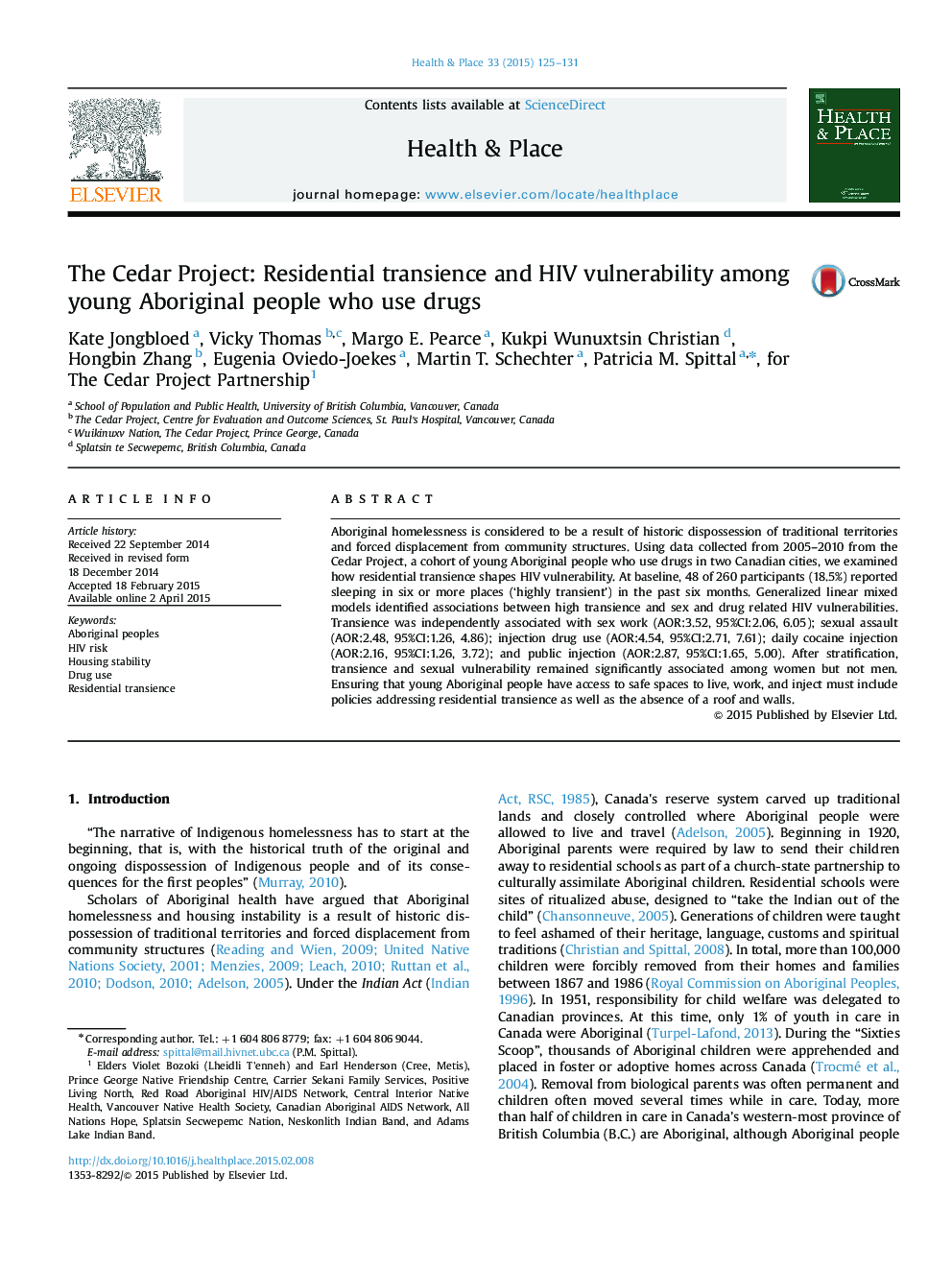| کد مقاله | کد نشریه | سال انتشار | مقاله انگلیسی | نسخه تمام متن |
|---|---|---|---|---|
| 7458178 | 1484528 | 2015 | 7 صفحه PDF | دانلود رایگان |
عنوان انگلیسی مقاله ISI
The Cedar Project: Residential transience and HIV vulnerability among young Aboriginal people who use drugs
ترجمه فارسی عنوان
پروژه سدر: تداوم مسکن و آسیب پذیری اچ آی وی در بین جوانان بومی که از مواد مخدر استفاده می کنند
دانلود مقاله + سفارش ترجمه
دانلود مقاله ISI انگلیسی
رایگان برای ایرانیان
موضوعات مرتبط
علوم پزشکی و سلامت
پزشکی و دندانپزشکی
سیاست های بهداشت و سلامت عمومی
چکیده انگلیسی
Aboriginal homelessness is considered to be a result of historic dispossession of traditional territories and forced displacement from community structures. Using data collected from 2005-2010 from the Cedar Project, a cohort of young Aboriginal people who use drugs in two Canadian cities, we examined how residential transience shapes HIV vulnerability. At baseline, 48 of 260 participants (18.5%) reported sleeping in six or more places ('highly transient') in the past six months. Generalized linear mixed models identified associations between high transience and sex and drug related HIV vulnerabilities. Transience was independently associated with sex work (AOR:3.52, 95%CI:2.06, 6.05); sexual assault (AOR:2.48, 95%CI:1.26, 4.86); injection drug use (AOR:4.54, 95%CI:2.71, 7.61); daily cocaine injection (AOR:2.16, 95%CI:1.26, 3.72); and public injection (AOR:2.87, 95%CI:1.65, 5.00). After stratification, transience and sexual vulnerability remained significantly associated among women but not men. Ensuring that young Aboriginal people have access to safe spaces to live, work, and inject must include policies addressing residential transience as well as the absence of a roof and walls.
ناشر
Database: Elsevier - ScienceDirect (ساینس دایرکت)
Journal: Health & Place - Volume 33, May 2015, Pages 125-131
Journal: Health & Place - Volume 33, May 2015, Pages 125-131
نویسندگان
Kate Jongbloed, Vicky Thomas, Margo E. Pearce, Kukpi Wunuxtsin Christian, Hongbin Zhang, Eugenia Oviedo-Joekes, Martin T. Schechter, Patricia M. Spittal, for The Cedar Project Partnership for The Cedar Project Partnership,
